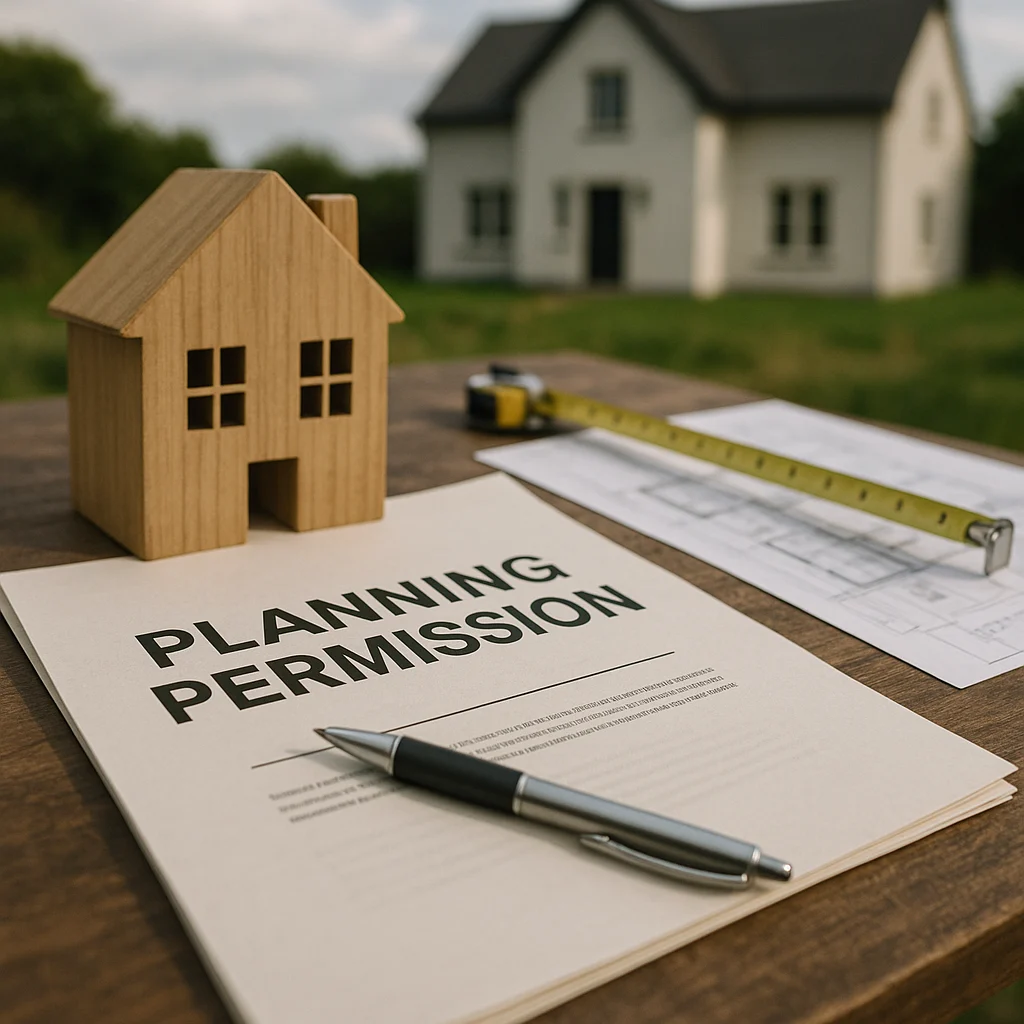Understanding Planning Permission in Ireland in 2025
Planning permission in Ireland remains a crucial step for anyone intending to develop or modify property. Whether you’re building a new home, extending an existing structure, or changing the use of land, securing the correct permissions ensures legal compliance and avoids costly penalties. As regulations evolve into 2025, understanding the current landscape of planning permission is vital for homeowners, developers, and investors alike. This guide will navigate you through the essentials, recent changes, and practical steps to get your planning application approved smoothly.
What Is Planning Permission and Why Is It Important?
Planning permission is the official approval required by local authorities before carrying out most types of building and development projects. It serves several key purposes:
– Ensures developments align with local and national planning policies.
– Protects the environment and local heritage.
– Maintains community standards and infrastructure capacity.
– Minimizes disputes between neighbours and developers.
Without it, you risk enforcement actions that may include fines or an order to undo the development. It’s also a fundamental part of responsible urban and rural planning in Ireland.
Types of Developments Requiring Planning Permission
Not every change to your property demands planning permission, but common instances that do include:
– New building construction such as houses, commercial properties, and agricultural structures.
– Extensions, including conservatories or additional storeys.
– Significant alterations to existing buildings.
– Changes in land use, such as converting farmland to residential use.
– Installation of certain infrastructure, for example, large signage or telecommunications equipment.
When Planning Permission Is Not Needed
Certain minor works may fall under “exempted development,” meaning you don’t need formal approval. Examples include:
– Small domestic alterations like garden sheds under a specific size.
– Internal modifications that don’t affect the exterior.
– Maintenance works that don’t change the building’s footprint.
However, it’s important to verify exemptions with local authorities as exemptions have precise conditions.
How to Apply for Planning Permission in Ireland
Obtaining planning permission involves several steps that require attention to detail and compliance.
Step-by-Step Guide to the Application Process
1. **Pre-application Research:** Check local development plans and zoning to confirm if your project is permissible.
2. **Prepare Documentation:** Submit detailed plans, drawings, and descriptions of the proposed development.
3. **Submit Application:** Lodge your application with the local planning authority along with the applicable fees.
4. **Public Notification:** A site notice must be displayed publicly, and neighbours informed.
5. **Assessment:** Planners review the application considering environmental impact, policies, and public submissions.
6. **Decision:** Authority may grant permission, grant with conditions, or refuse.
7. **Appeal Process:** There is an option to appeal to An Bord Pleanála if the decision is unsatisfactory.
Essential Documents for Submission
The quality of your documentation greatly impacts your application’s success:
– Site location map and site layout plans.
– Elevation drawings showing the external appearance.
– Planning support statements explaining how the project complies with local policies.
– Environmental and traffic impact assessments if required.
– Photographs of the site and surrounding area.
Recent Changes and Trends in Planning Permission for 2025
The Irish planning system regularly updates to meet evolving needs. Notable 2025 updates include:
Introduction of Digital Planning Services
Several local authorities now offer comprehensive online portals for submitting and tracking planning permission applications. This digitization improves transparency and speeds up processing times.
– Easier document uploads and fee payments.
– Real-time status updates.
– Digital public consultation capabilities.
Focus on Sustainable and Energy-Efficient Developments
In line with Ireland’s climate action goals, planning authorities increasingly emphasise:
– Use of sustainable materials.
– Energy-efficient building design.
– Incorporation of renewable energy sources like solar panels.
– Minimising environmental impact, especially in sensitive rural areas.
Streamlining for Affordable Housing Projects
The government has introduced fast-track planning processes for affordable housing developments to address supply shortages quickly without compromising standards.
Common Challenges and How to Overcome Them
Encountering hurdles during the planning permission process is not uncommon. Awareness and preparation help mitigate delays and refusals.
Typical Obstacles
– Incomplete or inaccurate documentation.
– Non-compliance with zoning laws or local plans.
– Objections from neighbours or community groups.
– Concerns related to environmental protection or heritage sites.
– Failing to notify relevant bodies such as heritage authorities.
Tips for a Successful Application
– Engage with your local planning office early for advice and clarifications.
– Hire professional architects or planners to prepare your plans.
– Consult neighbours before submitting to reduce objections.
– Address environmental and heritage considerations proactively.
– Follow all administrative requirements meticulously.
The Role of An Bord Pleanála and Appeals
An Bord Pleanála is Ireland’s independent planning appeals board. If you disagree with a planning authority’s decision, you can appeal.
When to Appeal
– If planning permission is refused.
– If you disagree with conditions imposed.
– If the local authority fails to issue a decision within statutory timeframes.
Appeal Process Overview
The board reviews all evidence, including public submissions, and makes a binding decision. Appeals can take several months, so consider this timeline in your project plans.
Helpful Resources and Where to Get Assistance
Navigating planning permission can be complex, but several resources make the process easier.
Local Planning Authorities
Each county council has planning offices providing application guidelines, current development plans, and status updates.
Online Portals and Guidance
– The official government planning website [https://www.gov.ie/en/publication/8c1f4-local-authority-planning-services/](https://www.gov.ie/en/publication/8c1f4-local-authority-planning-services/) offers tools and information on applications.
– An Bord Pleanála’s site explains appeal procedures.
Professional Help
Consider consulting registered planning consultants or architects who specialize in planning permission to improve your chances of success and avoid pitfalls.
Summary and Next Steps for Your Planning Permission Journey
Securing planning permission in Ireland in 2025 is an essential, regulated process that protects your investment and complies with evolving regulations. By understanding the types of developments requiring permission, following the correct application procedures, and preparing comprehensive documentation, you can streamline your project approval. Stay informed about recent updates like digital applications and sustainability requirements to keep your development aligned with current policies. When challenges arise, professional guidance and proactive communication with planning authorities and neighbours make a difference.
Ready to start your planning permission application or need tailored advice to navigate the process confidently? Reach out today at khmuhtadin.com for expert support and ensure your project is built on a solid foundation of compliance and clarity.




